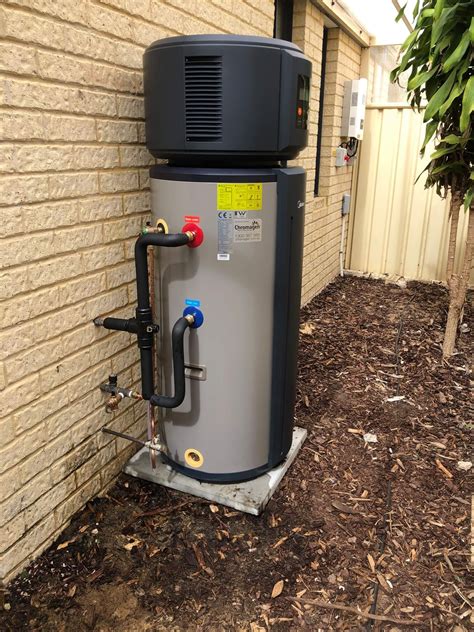In today’s world, energy efficiency is more than just a buzzword; it’s a necessity. With rising utility bills and increasing awareness of environmental concerns, homeowners are on the lookout for effective ways to save money while generating less carbon footprint. One such innovation that has gained traction in recent years is the heat pump hot water system.
Not only do these systems provide efficient heating for your water needs, but various rebate programs can also help you cut costs significantly. In this article, we will explore how heat pump hot water systems work, the financial and environmental benefits they offer, and how to access the available rebates that can further enhance your savings.
Understanding Heat Pump Hot Water Systems
A heat pump hot water system uses electricity to move heat from the air or ground to heat your water, rather than generating heat directly as traditional systems do. This technology relies on the principles of thermodynamics and is much more efficient, using 60% to 80% less energy compared to conventional electric resistance systems.
The efficiency of a heat pump can be attributed to its unique design. It consists of a refrigerant that absorbs heat from the air or earth. This heat is then compressed, raising its temperature before transferring it to the water. As a result, a heat pump hot water system can produce an average of three to four times more energy than it consumes.
The Financial Benefits
Investing in a heat pump hot water system can lead to significant savings over the long term. The initial cost may be higher than traditional water heaters, but the energy savings can offset this expense within a few years. Homeowners could see reductions of 30% to 50% in their energy bills, depending on usage and local electricity rates.
Additionally, you can take advantage of government rebates and incentives to make this investment even more appealing. Many states and local governments offer rebates for homeowners who install heat pump systems, which can further reduce the upfront costs.
The Environmental Impact
Choosing a heat pump hot water system is not only a financially wise decision but also an environmentally responsible one. These systems utilize renewable heat sources, which means they have a smaller carbon footprint compared to conventional water heaters. They also work well in tandem with other renewable energy technologies, like solar panels.
By reducing energy consumption, heat pump hot water systems contribute to lower greenhouse gas emissions. According to the U.S. Department of Energy, if every American household switched to a heat pump water heater, it would save more than 150 billion pounds of carbon dioxide emissions annually.
Accessing Heat Pump Hot Water Rebates
Heat pump hot water rebates are offered by various entities, including federal, state, and local governments, as well as utility companies. Here’s how to unlock these benefits:
- Research Available Programs: Before making a purchase, research the incentives available in your area. Websites like the Database of State Incentives for Renewables & Efficiency (DSIRE) can provide detailed information.
- Consult Professionals: Reach out to local contractors or the places you intend to purchase your system from. They often have the most up-to-date information on rebates.
- Check Eligibility Requirements: Each rebate program will have specific criteria that must be met. Ensure that your chosen heat pump system is eligible before making a purchase.
- Save Documentation: Keep records of your purchase and installation. This will be essential for refund claims.
Conclusion
Transitioning to a heat pump hot water system not only promises substantial savings in energy costs but also contributes positively to the environment. With various rebate programs available, this investment becomes increasingly appealing. Homeowners can enjoy the benefits of reduced utility bills while also taking proactive steps to promote sustainability.
If you are considering upgrading your water heating system, now is the time to explore the options available. Take advantage of the heat pump hot water rebates to reduce costs and embrace a more energy-efficient lifestyle. Your wallet and the planet will thank you!
FAQs
1. What is a heat pump hot water system?
A heat pump hot water system uses a heat pump to transfer heat from the air or ground to heat your water, making it a highly efficient alternative to traditional electric water heaters.
2. How much can I save by switching to a heat pump hot water system?
Homeowners can save between 30% and 50% on their energy bills after switching, depending on their usage and local electricity rates.
3. What rebates are available for heat pump hot water systems?
Various federal, state, and local programs offer rebates for heat pump hot water systems. The best way to find out what is available in your area is to research through resources like the DSIRE website or consult local contractors.
4. Are heat pump water heaters noisy?
Heat pump water heaters do produce some noise when operating, but they are generally quieter than traditional systems since they operate at lower decibel levels. Many models are designed to minimize noise.
5. Can heat pump hot water systems work in cold climates?
Yes, heat pump hot water systems can operate efficiently in colder climates. However, their performance may decrease in extreme cold. It’s essential to check for models that are rated for low temperatures if you live in a colder area.
Download Heat Pump Hot Water Rebate
